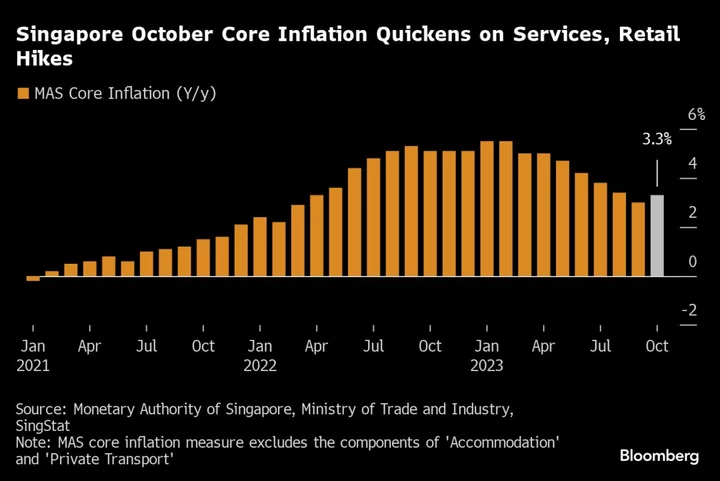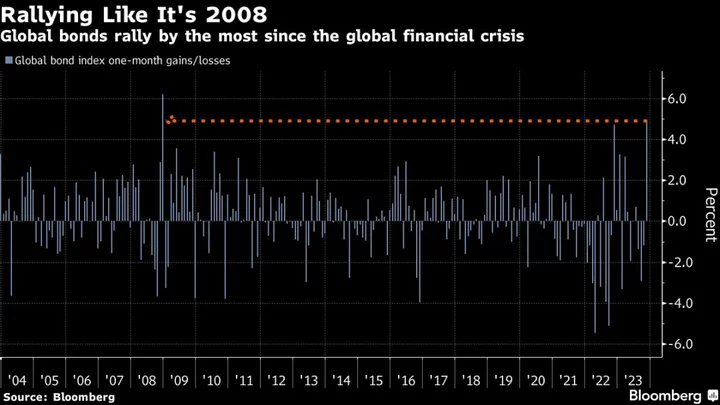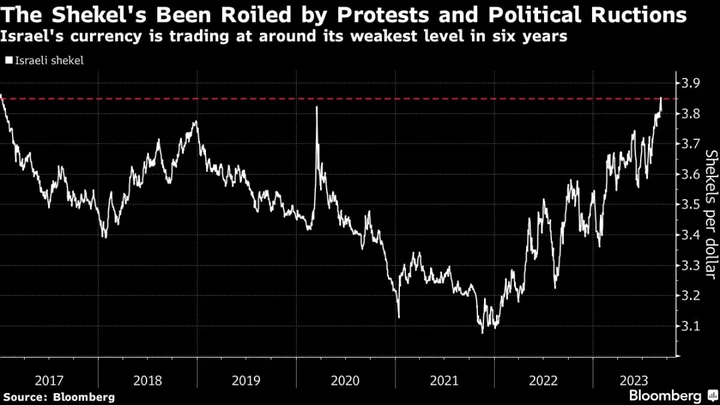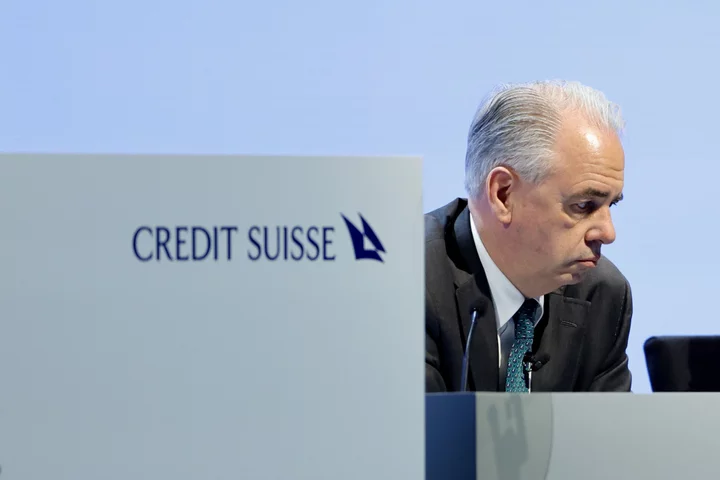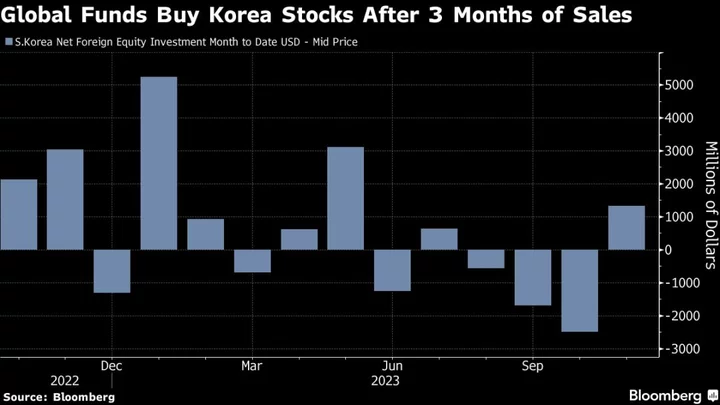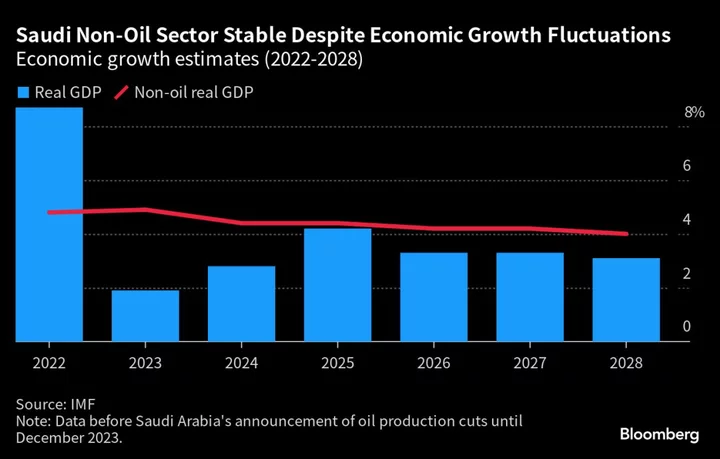Singapore’s core inflation accelerated in October for the first time since January, supporting the central bank’s expectation of near-term upside risk as services and utility costs rose.
The core measure, which excludes housing and private transportation costs, quickened to 3.3% from a year ago, official data showed Thursday. The gauge that’s tracked by the Monetary Authority of Singapore cooled to an 18-month low in September.
Last month’s reading compares with a median 3.1% gain in a Bloomberg survey and 3.0% pace in September while the all-items inflation print gathered pace at 4.7% from 4.1% the prior month.
Authorities see some near-term volatility to inflation, though the broad trajectory is for continued moderation after the first quarter, according to MAS Deputy Managing Director and Chief Economist Edward Robinson at a briefing on Wednesday.
Sticky core inflation could delay the global manufacturing rebound anticipated by the government in 2024 as monetary authorities maintain elevated borrowing costs to quell price pressures.
The MAS’s policy stance is appropriate as it stated in October when it kept monetary settings steady, according to Robinson. Singapore’s central bank uses the exchange rate instead of interest rates as its main policy tool.
Higher gas and electricity prices were due to rise this quarter in Singapore and water rates are set to increase in April, the latest price pressures to hit the city-state where rentals remain elevated and even cheap hawker meals are disappearing.
The MAS and the Ministry of Trade and Industry core inflation to average around 4% this year, while they see the all-items index to come in at around 5%. For 2024, the core gauge is forecast to average 2.5%–3.5% and the broader measure to be in a range of 3%-4%.
Key details of the October price print:
- Food inflation +4.1% y/y, +0.2 m/m
- Housing and utilities +3.9% y/y; -1% m/m
- Health care +5.2% y/y; +0.6% m/m
--With assistance from Nurin Sofia.

